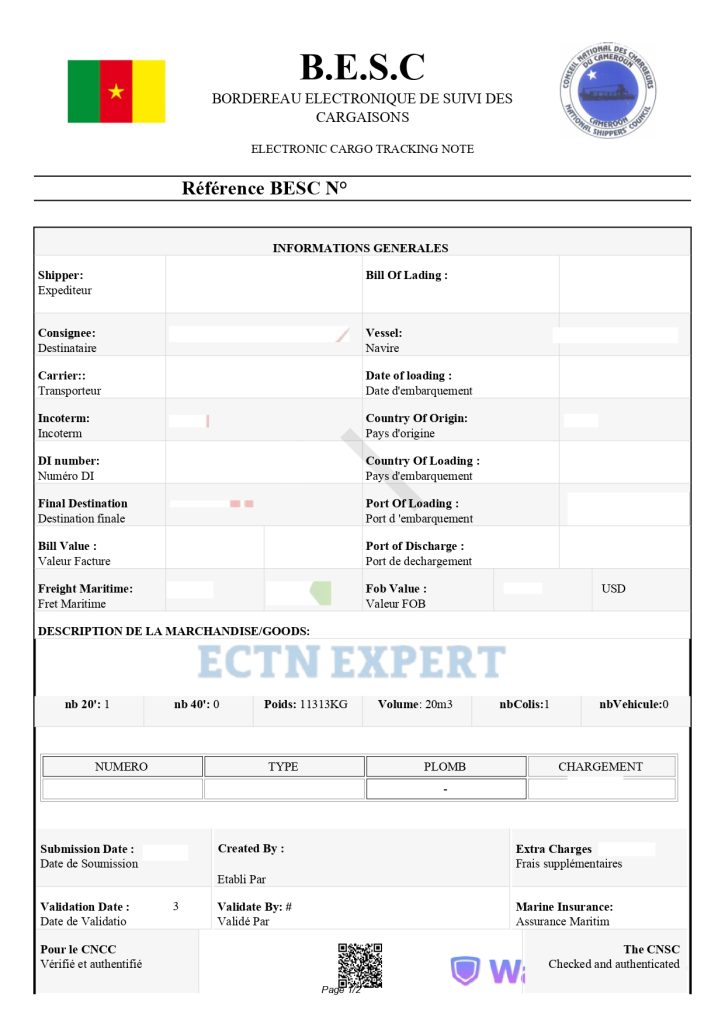Cameroon BESC
In the year 2006, Cameroon Authorities implemented a new regulation that made all shipments to Cameroon mandatory to have a BESC certificate. Without it, you’ll face severe consequences and a penalty. But, if you are using Cameroon for transit purposes, in some cases, you don’t need to have a BESC. To find out more on transit shipments. The BESC is mandatory for all ports in Cameroon. Including Douala, Kribi etc.
Although it is mandatory and crucial for the process, it is one of the most overlooked certificates.
What are the required documents?
- Bill of Lading:This is a document that provides information about the exporter, the importer, the weight and volume of the goods, the shipping line, the vessel name, etc.
- Freight Invoice: This is a document that is only necessary if the freight cost isn’t on the commercial invoice.
- Commercial Invoice: This document contains the details of the goods, the incoterm, the freight cost, and some other charges like insurance, etc.
- Import Declaration: It’s a document that provides information about the importer, the type of transport, etc. The importer has to provide it, and it has to contain a Tax Payer’s ID, a PR number, and an SGS number.

What will happen if you don’t have it?
The BESC certificate must be validated five days before the vessel arrives at the latest. If it isn’t validated, by then, you’d have to pay twice the amount of the BESC cost plus the regulation charges determined by the Cameroon National Port Officials.
Pricing
Certificate cost depends on the number of Bill of Ladings and the containers, the country of origin, the port of discharge, etc. This is why we can’t give you an exact price for the ECTN. But if you share your shipment’s details with us we can provide you the best charges for your certificate. We offer free quotation.

